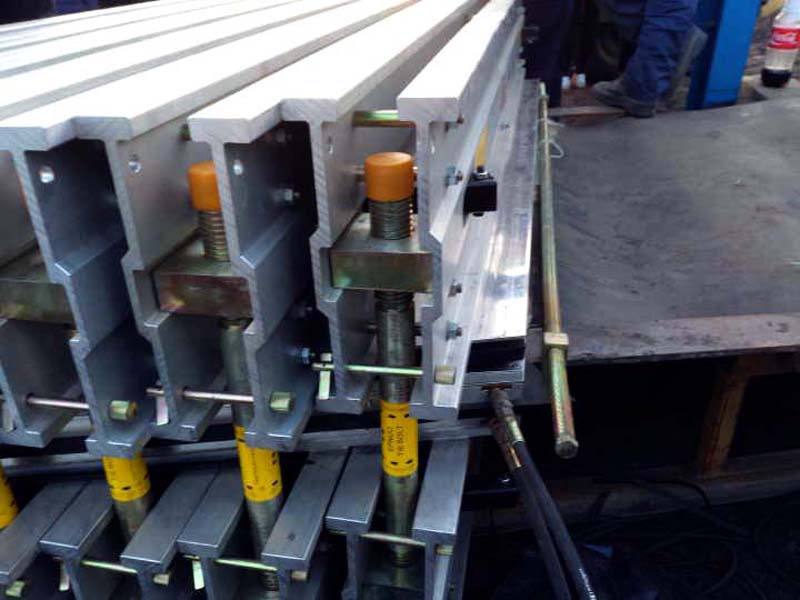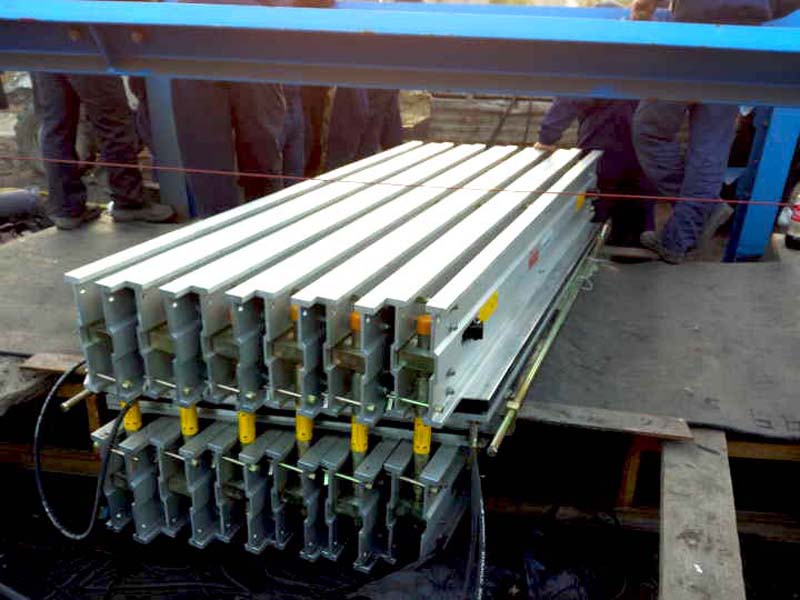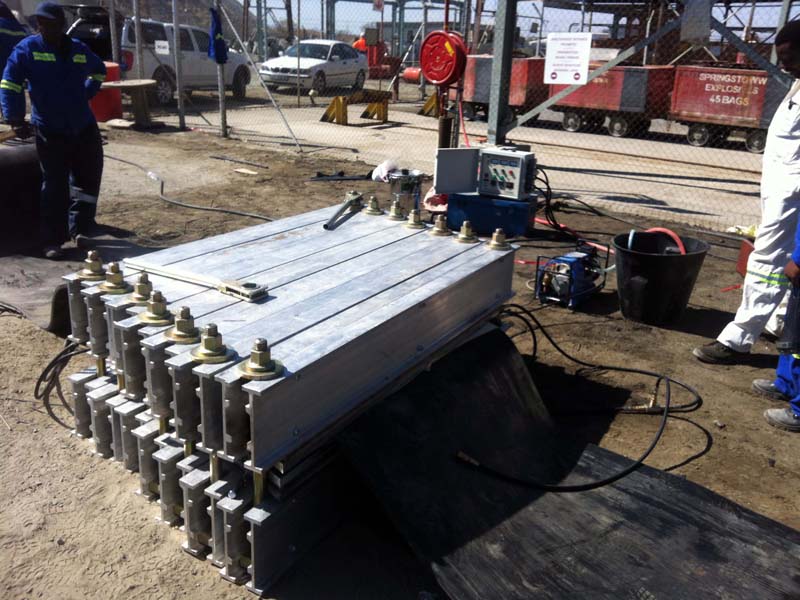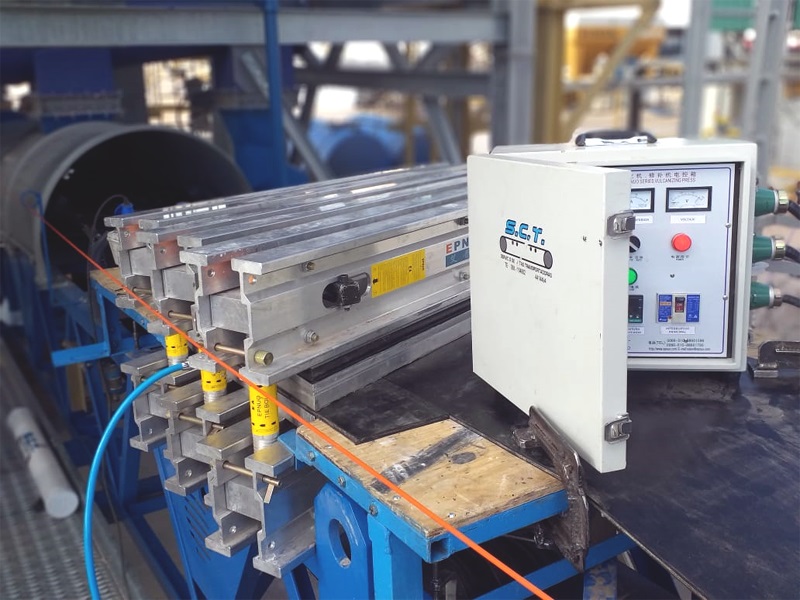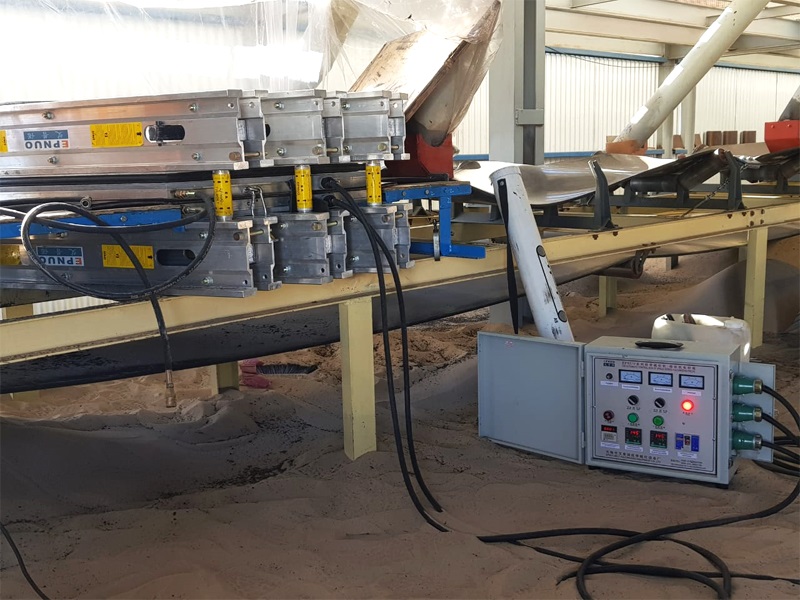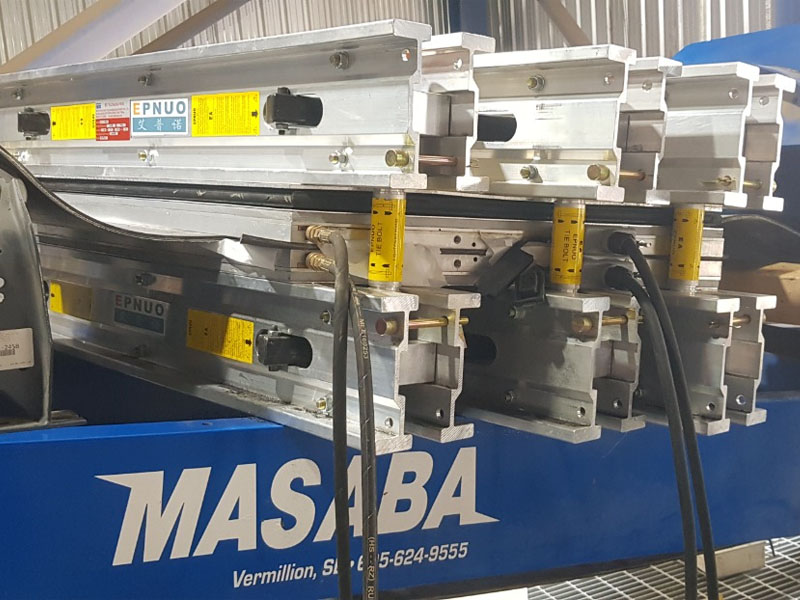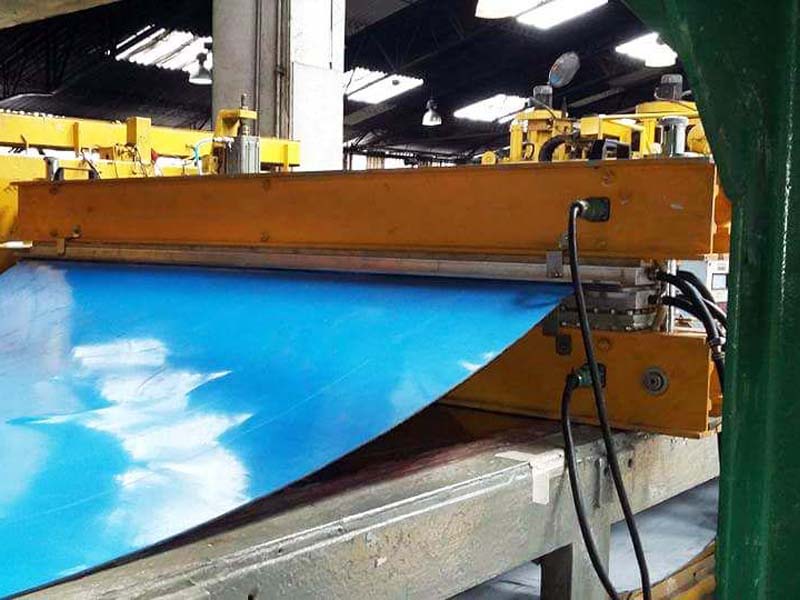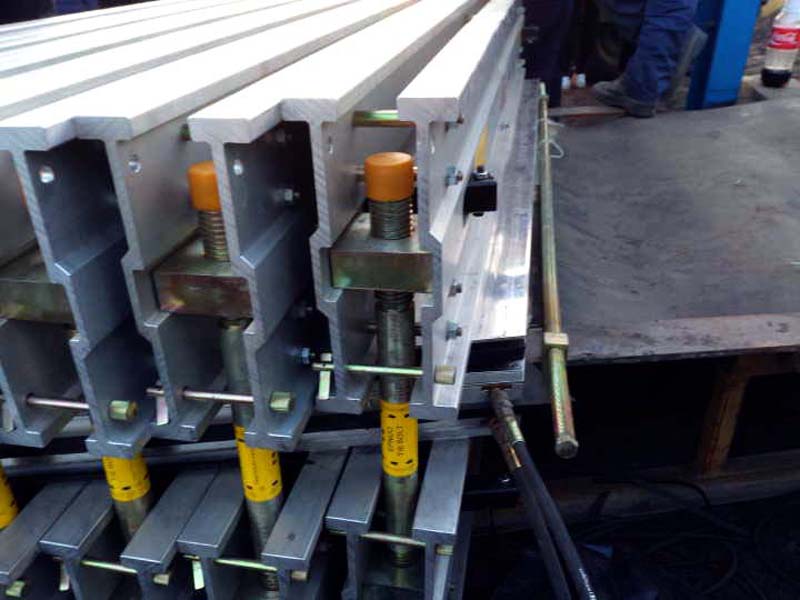What should be done if the conveyor belt vulcanizer emits noise?
During the operation of the conveyor belt vulcanizer, due to wear and tear of hydraulic pump parts, excessive gaps, lack of flow rate, and easy pressure fluctuation, noise can also be caused; Oil viscosity is a problem. If the oil viscosity is too high, oil absorption resistance will be added, which is easy to show cavitation, resulting in a lack of pressure and flow; If the viscosity of the oil is too low, it will add leakage, reduce volumetric efficiency, and simply absorb air, forming impact and crawling, and then oscillate, causing noise.
The main causes of noise are: flow pulsation and pressure pulsation of the hydraulic pump, resulting in oscillation of the pump components. If the fundamental frequency and resonant frequency of the hydraulic pump are consistent with the natural frequency of mechanical or hydraulic systems, noise will greatly increase. The channel inside the pump has sudden expansion and contraction of the cross-section or sharp turns. If the channel area is too small, it will cause liquid turbulence, vortices, and jets, and then increase the noise.
Due to mechanical reasons, such as imbalanced rolling parts, poor bearings, and bending of pump shafts, mechanical vibrations can cause mechanical noise. During the operation of hydraulic pumps, when the oil suction chamber suddenly communicates with the oil pressure chamber, or when the oil pressure chamber suddenly communicates with the oil suction chamber, a sudden change in pressure occurs, and their impact on noise is particularly significant.
When the pressure in the oil suction chamber of the hydraulic pump is lower than the air separation pressure at the temperature of the oil, the air dissolved in the oil precipitates and becomes bubbles. When this type of oil with bubbles enters the high-pressure chamber, the bubbles are broken, forming a local high-frequency pressure impact, and then causing noise.


 英语
英语 英语
英语

